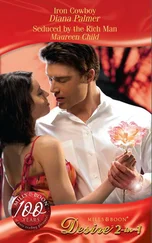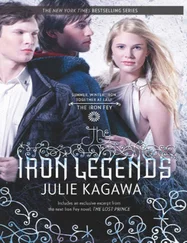I stand in the middle of the avenue opposite the Parliament buildings, circled by people, doing my tricks with fire. Over me tower great oaks. But my mind is not on my tricks. I am intent on Florence. Her dark coat, her dull dress have fallen away. In a white slip ruffled by the wind, her feet bare, her head bare, her right breast bare, she strides past, the one child, masked, naked, trotting quickly beside her, the other stretching an arm out over her shoulder, pointing.
Who is this goddess who comes in a vision with uncovered breast cutting the air? It is Aphrodite, but not smile-loving Aphrodite, patroness of pleasures: an older figure, a figure of urgency, of cries in the dark, short and sharp, of blood and earth, emerging for an instant, showing herself, passing.
From the goddess conies no call, no signal. Her eye is open and is blank. She sees and does not see.
Burning, doing my show, I stand transfixed. The flames flowing from me are blue as ice. I feel no pain.
It is a vision from last night's dream-time but also from outside time. Forever the goddess is passing, forever, caught in a posture of surprise and regret, I do not follow. Though I peer and peer into the vortex from which visions come, the wake of the goddess and her god-children remains empty, the woman who should follow behind not there, the woman with serpents of name in her hair who beats her arms and cries and dances.
I related the dream to Vercueil.
'Is it real?' he asked,
'Real? Of course not. It isn't even authentic. Florence has nothing to do with Greece. Figures in dreams have another kind of import. They are signs, signs of other things.'
'Were they real? Was she real?' he repeated, bringing me up short, refusing to be deflected. 'What else did you see?'
'What else? Is there more? Do you know?' I said more softly, feeling my way after him now.
He shook his head, baffled.
'All the days you have known me,' I said, 'I have been standing on the river-bank awaiting my turn. I am waiting for someone to show me the way across. Every minute of every day I am here, waiting. That is what else I see. Do you see it too?'
He said nothing.
'The reason I fight against going back to hospital is that in hospital they will put me to sleep. That is the expression they use for animals, as a kindness, but they may as well use it for people. They will put me into a sleep without dreams. They will feed me mandragora till I grow drowsy and fall, into the river and am drowned and washed away. That way I will never cross. I cannot allow it to happen. I have come too far. I cannot have my eyes closed.'
'What do you want to see?' said Vercueil. 'I want to see you as you really are.' Diffidently he shrugged. 'Who am I?'
'Just a man. A man who came without being invited. More I can't say yet. Can you?' He shook his head. 'No.'
'If you want to do something for me,' I said, 'you can fix the aerial for the radio.'
'Don't you want me to bring the television up instead?'
'I haven't the stomach to watch television. It will make me sick.'
'Television can't make you sick. It's just pictures.'
'There is no such thing as just pictures. There are men behind the pictures. They send out their pictures to make people sick. You know what I am talking about.'
'Pictures can't make you sick.'
Sometimes he does this: contradicts me, provokes me, chips away at me, watching for signs of irritation. It is his way of teasing, so clumsy, so unappealing that my heart quite goes out to him.
'Fix the aerial, please, that's all I ask.'
He went downstairs. Minutes later he came stamping up with the television set in his arms. He plugged it in facing the bed, switched it on, fiddled with the aerial, stood aside. It was mid-afternoon. Against blue sky a flag waved. A brass band played the anthem of the Republic.
'Switch it off,' I said.
He turned the sound louder.
'Switch it off!' I screamed.
He wheeled, took in my angry glare. Then, to my surprise, he began to do a little shuffle. Swaying his hips, holding his hands out, clicking his fingers, he danced, unmistakably danced, to music I never thought could be danced to. He was mouthing words too. What were they? Not, certainly, the words I knew.
'Off!' I screamed again.
An old woman, toothless, in a rage: 1 must have looked a sight. He turned the sound down.
'Off!'
He switched it off. 'Don't get so upset,' he murmured.
'Then don't be silly, Vercueil. And don't make fun of me. Don't trivialize me.'
'Still, why get in a state?'
'Because I am afraid of going to hell and having to listen to Die stem for all eternity.'
He shook his head. 'Don't worry,' he said: 'it's all going to end. Have patience.'
'I haven't: got time for patience. You may have time but I haven't got time.'
Again he shook his head. 'Maybe you've also got time,' he whispered, and gave me his toothed leer.
For an instant it was as if the heavens opened and light blazed down. Hungry for good news after a lifetime of bad news, unable to help myself, I smiled back. 'Really?' I said. He nodded. Like two fools we grinned each at the other. He clicked his fingers suggestively; awkward as a gannet, all feathers and bone, he repeated a step of his dance. Then he went out, climbed the ladder and joined the broken wire, and I had the radio again.
But what was there to listen to? The airwaves so bulge nowadays with the nations peddling their wares that music is all but squeezed out. I fell asleep to An American in Paris and awoke to a steady patter of morse. Where did it come from? From a ship at sea? From some old-fashioned steamship plying the waves between Walvis Bay and Ascension Island?
The dots and dashes followed on without haste, without falter, in a stream that promised to flow till the cows came home. What was their message? Did it matter? Their patter, like rain, a rain of meaning, comforted me, made the night bearable as I lay waiting for the hour to roll round for the next pill.
I say I do not want to be put to sleep. The truth is, without sleep I cannot endure. Whatever else it brings, the Diconal at least brings sleep or a simulacrum of sleep. As the pain recedes, as time quickens, as the horizon lifts, my attention, concentrated like a burning-glass on the pain, can slacken for a while; I can draw breath, unclench my hailed hands, straighten my legs. Give thanks for this mercy, I say to myself: for the sick body stunned, for the soul drowsy, half out of its casing, beginning; to float.
But the respite is never long. Clouds come over, thoughts begin to bunch, to take on the dense, angry life of a swarm of flies. I shake my head, trying; to clear them away. This is my hand, I say, opening my eyes wide, staring at the veins on the back of my hand; this is the bedspread. Then as quick as lightning something strikes. In an instant I am gone and in another instant I am back, still staring at my hand. Between these instants an hour may have passed or the blink of an eye, during which I have been absent, gone, struggling with something thick and rubbery that invades the mouth and grips the tongue at its root, something that comes from the depths of the sea. I surface, shaking my head like a swimmer. In my throat is a taste of bile, of sulphur. Madness! I say to myself: this is what it tastes like to be mad!
Once I came to myself facing the wall. In my hand was a pencil, its point broken. All over the wall were sprawling, sliding characters, meaningless, coming from me or someone inside me.
I telephoned Dr Syfret. 'My reaction to the Diconal seems to be getting worse,' I said, and tried to describe it. 'I wonder, is there no alternative you can prescribe?'
'I was not aware that you still regarded yourself as under my care,' replied Dr Syfret. 'You should be in hospital getting proper attention. I can't conduct a surgery over the telephone.'
Читать дальше












